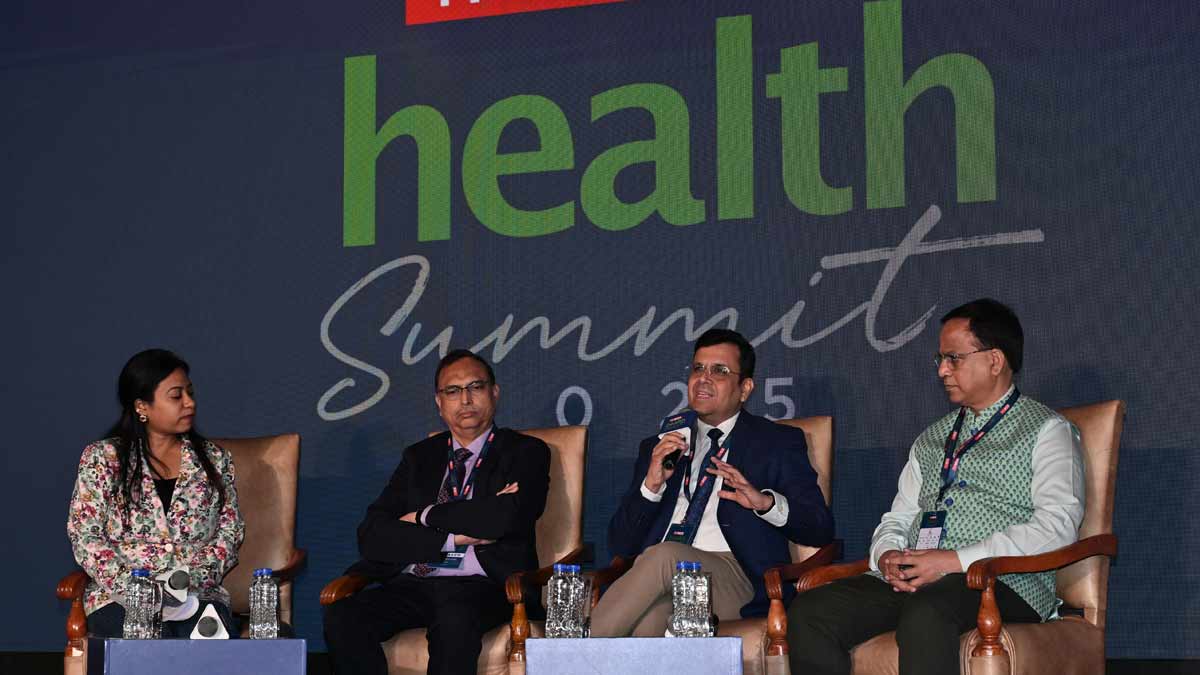THE WEEK Health Summit 2025 | Decoding India’s NCD burden: The CKM approach and growing role of semaglutide
 The session at THE WEEK Health Summit 2025 was moderated by Pooja Biraia, THE WEEK’s Principal Correspondent, and had Dr Pankaj Bhardwaj, Director of ICMR-NIIRNCD, Dr Rajesh Khadgawat, Professor of Endocrinology at AIIMS, and Dr Naveen Garg, Professor of Cardiology at SGPGIMS Lucknow, as speakers | Sanjay Ahlawat
The session at THE WEEK Health Summit 2025 was moderated by Pooja Biraia, THE WEEK’s Principal Correspondent, and had Dr Pankaj Bhardwaj, Director of ICMR-NIIRNCD, Dr Rajesh Khadgawat, Professor of Endocrinology at AIIMS, and Dr Naveen Garg, Professor of Cardiology at SGPGIMS Lucknow, as speakers | Sanjay Ahlawat
At THE WEEK Health Summit 2025 in New Delhi today, the panel discussion titled ‘Diabetes as an interlinked disease: The CKM Approach to NCDs. Decoding India’s NCD burden’ drew attention to one of India’s rapidly evolving health challenges. Moderated by Pooja Biraia, THE WEEK’s Principal Correspondent, the session brought together Dr Pankaj Bhardwaj, Director of ICMR-NIIRNCD, Dr Rajesh Khadgawat, Professor of Endocrinology at AIIMS, and Dr Naveen Garg, Professor of Cardiology at SGPGIMS Lucknow. Collectively they argued that the Cardiovascular–Kidney–Metabolic (CKM) model offers India a more coherent and effective path for addressing non-communicable diseases.
The ICMR has done years of extensive research, such as the large-scale ICMR-INDIAB study. Based on those, Bhardwaj warned that diabetes has evolved into a multi-organ challenge in India. He spoke about the wide variation in prevalence across states, with some regions like Uttar Pradesh reporting rates below 5 per cent while others like Goa exceeding 25 per cent. Abdominal obesity, he said, has emerged as a critical driver, affecting nearly two out of five adults, even as a substantial proportion of the population remains prediabetic. Bhardwaj stressed the need for earlier detection through routine screening at community health centres, especially for those above 20. Under the CKM approach, he said, risk assessment across heart, kidney and metabolic indicators should occur simultaneously rather than in silos. ICMR has issued guidelines for a uniform framework for frontline doctors to identify and manage these risks more effectively.
Khadgawat spoke about results from recent national health surveys, especially the fifth round, which show that diabetes is rising fastest in rural India and among lower-income populations. This is a clear shift from the earlier pattern of diabetes being an urban condition. He also pointed out the increasing incidence of diabetes among people with normal BMI, stressing on the importance of looking beyond traditional markers. He called for intensified awareness campaigns and community-based programmes that highlight early symptoms, lifestyle risks and the importance of regular testing.
Garg explained how diabetes could lead to a number of other complications such as high cholesterol, fatty liver disease, chronic kidney disease, stroke and heart attack. This, he argued, makes the CKM lens indispensable, as it encourages clinicians and patients to see these disorders as interconnected. He emphasised lifestyle measure: balanced diet, daily physical activity, quality sleep, improved mental health, reduced screen time and avoidance of smoking and alcohol.
Another point stressed by Garg was the importance of medication that would not just treat blood sugar but also prevent long-term complications. He mentioned newer drugs such as semaglutide, a GLP-1 receptor agonist, which has shown significant benefits. It helps bring down HbA1c, promote weight loss and lowers the risk of cardiovascular events, making it a key component of CKM-based care. It could also be used to treat conditions such as fatty liver disease.
Health